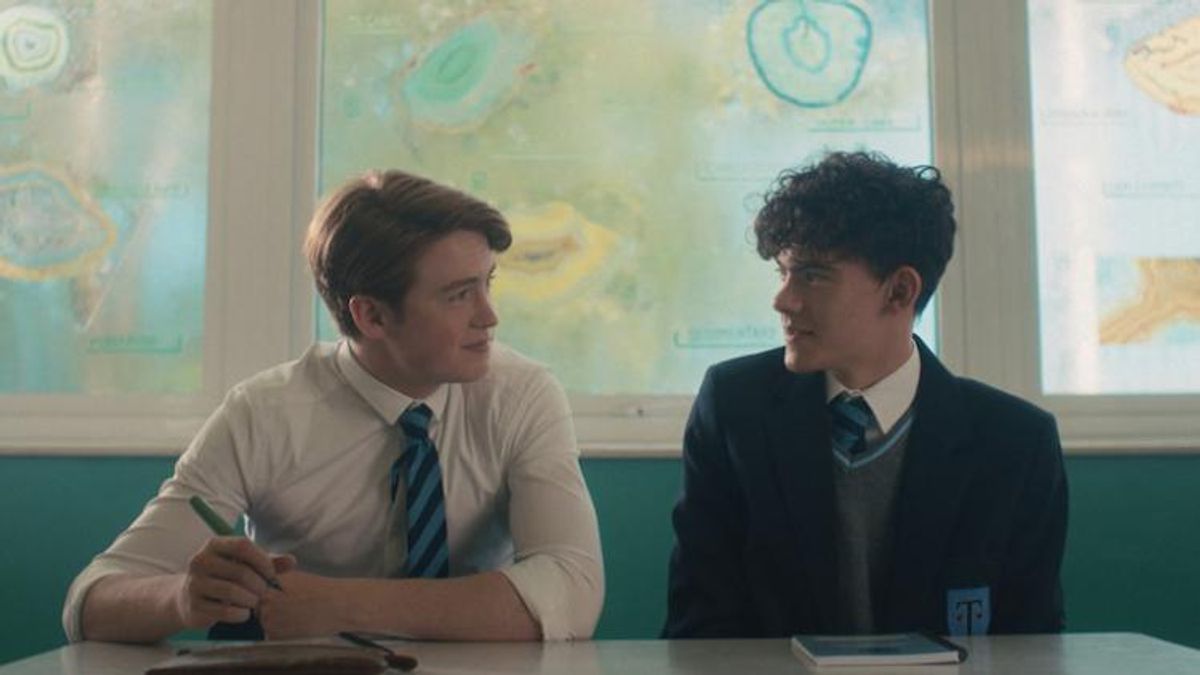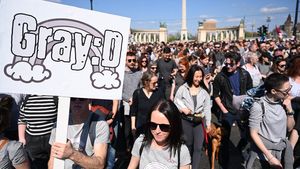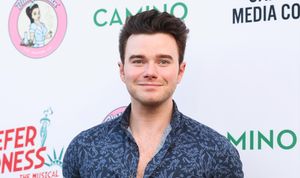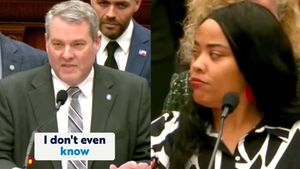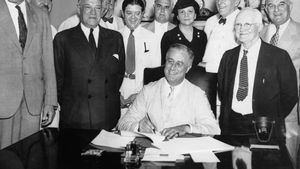Editor's note: this post contains minor spoilers for season one of Netflix's Heartstopper.
Netflix's Heartstopper is the newest coming-of-age television series on LGBTQ+ folks' minds right now.
Based on Alice Oseman's graphic novel series of the same name, Heartstopper tells the story of Charlie (Joe Locke) falling in love with a boy named Nick (Kit Connor), the star of their high school's rugby team. The show was adapted for television by Oseman herself, with Euros Lyn directing all eight episodes in the first season. In the beginning of the series, Charlie initially maintains a secretive relationship with Ben (Sebastian Croft), who's in the closet about liking guys. Charlie then meets Nick, who is dealing with his own discovery of being bisexual. Besides the core love story between Charlie and Nick, the series also follows other LGBTQ+ characters such as Elle (Yasmin Finney), Tara (Corinna Brown), and Darcy (Kizzy Edgell).
A common thread throughout Heartstopper is the characters' constant need to apologize and self-sabotage their own happiness. This first season starts with Charlie's incredibly toxic relationship with Ben. The issue isn't that Ben isn't ready to come out and wants to keep their relationship a secret, but rather that he deliberately bullies Charlie whenever they're in front of other people. This dynamic ends up informing Charlie's ongoing feelings of unworthiness. The first few episodes also reveal how long it took for Charlie to report the students who had been bullying him in school for being gay.
When Charlie later meets Nick and develops a crush on him, Charlie doesn't think he is worthy enough of even being friends with Nick - no matter how kind, reliable, and attentive Nick acts toward him. We see Charlie constantly apologizing for even the smallest things and asking people not to worry about him, even when he does need someone to be there for him. Overall, it's clear that Charlie is very uncomfortable with taking up space in someone else's life.
It takes quite a bit of work for Nick to convince Charlie that he needs to apologize less often for simply existing as a gay person and wanting to experience a love story. Charlie can take up enough space to stand up to someone like Ben, try out for the rugby team, and have someone like Nick falling in love with him. But, in a sense, Charlie's self-sabotaging antics present themselves in different ways in most of the LGBTQ+ characters on Heartstopper.
Charlie's friend Elle, a trans girl who is forced to transfer to an all-girls school after being bullied, has a hard time believing that anyone would want to be her friend. When Tara starts a conversation with Elle about her personalized pencil case, Elle legitimately thinks that their teacher asked Tara to befriend her. Elle also seems to be completely unaware that a boy like Tao (William Gao) could have feelings for her - no matter how many times their friends point it out.
When we first meet Tara and Darcy and find out they are girlfriends, the pair appears to be very unapologetic about their relationship. Alas, it doesn't take long for external voices to creep into Tara's head and make her feel insecure about being a lesbian, and she ends up accidentally letting people make her feel like she's doing something wrong.
Even Nick himself, who tries to make Charlie feel more at ease, starts constantly self-sabotaging himself while exploring his bisexuality. He hates his group of friends but doesn't think he has any agency to leave them behind or stand up to their frequent homophobic, problematic statements. Nick also starts to constantly compare himself to Ben and wonder if he's being as toxic to Charlie as Ben was, which couldn't be further from the truth.
An important counternarrative shown on the Netflix series is that the characters who should be apologizing for their actions, don't. Ben treats Charlie very badly and, even after being called out, Ben's response is to belittle Charlie even further. Moreover, the character of Harry (Cormac Hyde-Corrin) spends the entire season bullying people and making others feel uncomfortable, but he never gets to apologize for any of it, either.
All things considered, Heartstopper deliberately shows various examples of LGBTQ+ people feeling like they should apologize for being themselves and experiencing feelings such as love, jealousy, and heartbreak. These young LGBTQ+ individuals are clearly terrified of taking up space in a world that has never centered them as protagonists worthy of leading their own stories.
Charlie's apologetic behavior culminates in him literally breaking up with Nick for "causing too many problems" in Nick's life. Charlie is unable to see that Nick's ongoing problems come from the brand-new realization that he is bisexual - something that is out of Charlie's control. They do end up getting back together eventually, but it takes a lot of heavy lifting from Nick to convince Charlie that being afraid to confront his rugby friends and coming out to his mom have nothing to do with Charlie.
Historically, LGBTQ+ people have gotten used to hiding their identities, feeling fulfilled by toxic relationships with closeted folks, and not speaking up on their own behalf even when it is appropriate and safe to do so. Gays and lesbians have been conditioned to not stand up to homophobic comments time and time again, whereas bisexuals have been basically erased from existence due to a fear of being misunderstood. Trans and non-binary people have also gotten used to being misgendered and not calling it out, having a hard time identifying potential love interests, and constantly being unsure whether they are in a safe space to be their full selves.
Heartstopper argues that it's time for LGBTQ+ people to stop apologizing for themselves and start living a more out-loud existence. Unfortunately, this is a tall order for queer individuals - particularly young ones - whose safety can be threatened on a regular basis. However, the full Heartstopper fantasy shows a world where young LGBTQ+ people can start making up space for themselves just like their straight counterparts do: completely unapologetically.
Heartstopper is now streaming on Netflix.
RELATED | 9 Gay & Queer TV Shows to Watch This Spring
